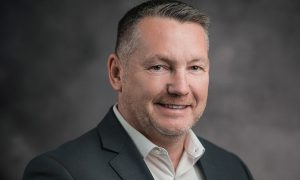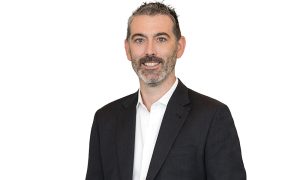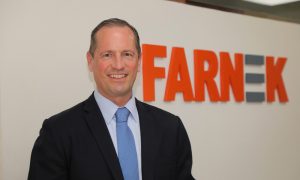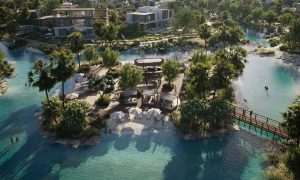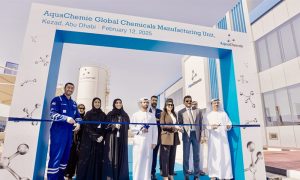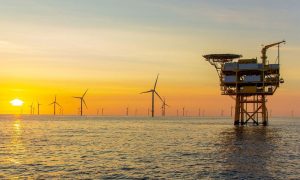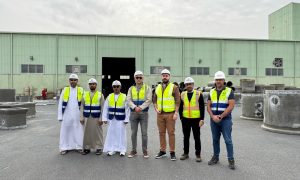GCC to spend $300bn on water technologies by 2022
Japan targets share of UAE and GCC’s bourgeoning clean energy and water industry and confirms participation in World Future Energy Summit 2015

Japan, an Asian leader in sustainability, has confirmed its participation at the 2015 edition of the World Future Energy Summit (WFES) and International Water Summit (IWS) next January. The events which take place during Abu Dhabi Sustainability Week – hosted by Masdar – will offer Japanese companies a window into the UAE and GCC region’s growing clean energy and water industries.
The GCC region is expected to spend $300bn on water technology and desalination projects between now and 2022, while the Middle East and North Africa (MENA) region has allocated $50bn to renewable energy deployment until 2020, according to the UAE delegation, who visited Tokyo last week and made a presentation to the Japanese Ministry of Economy, Trade and Industry and Japanese corporations. They outlined the commercial opportunities for inward investment as the Middle East diversifies its energy mix, water resources and steps up its sustainability ambitions. The UAE delegation included Matthew Griffiths, Director of Water Strategy and Reuse at Abu Dhabi’s Regulation and Supervision Bureau, and Naji El Haddad, WFES Show Director.
Tadashi Mitsugi, Director of the Japan Cooperation Center for the Middle East (JCCME), said, “The MENA region is one of the most exciting markets for clean technology development, water treatment and natural resources management in the world. Rising energy and potable water demands, combined with huge solar and wind potential and strong leadership in the move towards sustainability, make it an attractive market for Japanese environmental technology companies. Nowhere is this truer than in Abu Dhabi, and we look forward to exploring the emerging opportunities the region’s flagship future energy event offers us.”
Japan emerged as the only top 20 ranked Asian country in the 2013 Global Sustainable Competitiveness Index, released earlier this year. The East Asian nation was placed twelfth among 176 countries, for its ability to maintain economic growth in a world of reduced natural resources. In the specific field of sustainable innovation, Japan ranked fourth.
“Japan is a global leader in the deployment of solar energy and a clean technology innovator,” said Naji Haddad. “Their experience and knowledge can play a key role in enhancing the UAE’s and wider region’s renewable energy and clean technology industry as it enters a period of growth. The World Future Energy Summit and International Water Summit unite players from across the full value chain, offering innovators and technology players both large and small, an unrivalled platform to showcase themselves and realize commercial opportunities.”
The Middle East and North Africa is fast emerging as one of the world’s most promising clean energy regions – particularly in the adoption of solar energy. The region has the potential to supply between 50 and 70 percent of the world’s energy. Responsible for nearly 60 percent of global desalination capacity, the region is also piloting desalination from renewable energy technology. Masdar recently awarded four companies with a contract to begin work on a pilot project.
Organised by Reed Exhibitions, WFES and IWS will take place from January 19-22 as part of Abu Dhabi Sustainability Week (ADSW) 2015, the region’s largest gathering on sustainability. With a focus on the interconnected challenges and opportunities of sustainable growth, ADSW and its participating conferences and exhibitions include the World Future Energy Summit, International Water Summit and EcoWaste. ADSW is hosted by Masdar.




